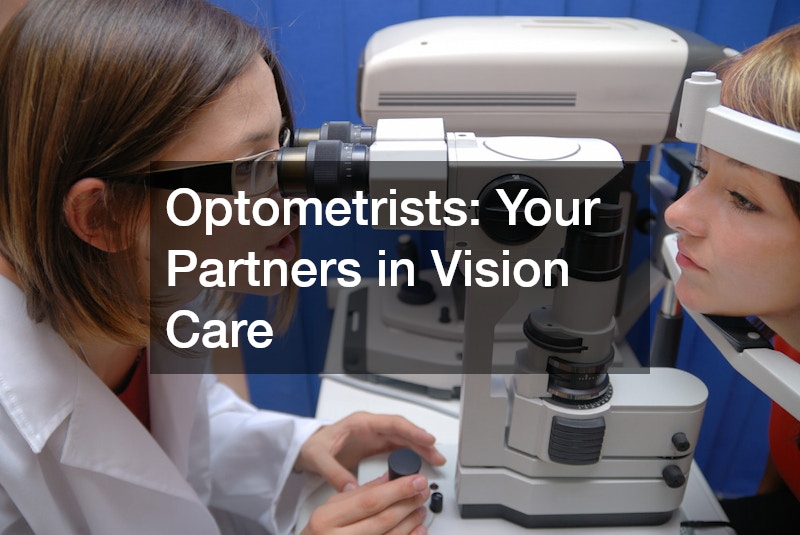
Your vision is one of the most critical aspects of your health and well-being, and taking care of it requires the expertise of dedicated professionals. Optometrists play an essential role in helping maintain and improve your vision. They are highly trained individuals who focus on the health of your eyes and provide a wide range of services to ensure optimal eye health and vision clarity.
Video Source
Optometrists are healthcare professionals who specialize in the examination, diagnosis, and treatment of eye conditions. They often serve as the first point of contact for patients experiencing vision problems or seeking preventive eye care. Optometrists hold a Doctor of Optometry (OD) degree, which requires several years of rigorous academic and clinical training.
The primary role of an optometrist is to conduct comprehensive eye exams that evaluate vision and detect eye diseases. During these exams, optometrists utilize advanced diagnostic tools and techniques to assess the health of the eye and visual systems. Optometrists can prescribe corrective lenses, provide treatment for certain eye conditions, and offer advice on maintaining good eye health.
Unlike ophthalmologists, optometrists are not medical doctors, but they collaborate closely with them and other healthcare providers to ensure comprehensive patient care. They refer patients to ophthalmologists for surgical interventions or more advanced treatments when necessary. This collaborative approach ensures that patients receive the appropriate level of care for their specific needs.
Regular eye exams are vital for maintaining eye health and detecting issues before they become severe. Optometrists recommend that adults have their eyes examined at least once every two years, or more frequently if they have vision problems or risk factors. These exams not only check for vision-related problems but also screen for systemic conditions like diabetes and high blood pressure, which can affect eye health.
One of the primary purposes of regular eye exams is to update prescriptions for glasses or contact lenses, ensuring optimal vision correction. Beyond vision correction, optometrists assess the overall health of the eyes, checking for conditions such as glaucoma, cataracts, and age-related macular degeneration. Early detection of these conditions by an optometrist can lead to more successful treatments and prevent significant vision loss.
Moreover, routine eye exams can provide insight into the overall health of a patient, sometimes detecting underlying health conditions. For instance, changes in the eye can be an early sign of diabetes or high cholesterol. As such, optometrists play a critical role not only in eye health but in overall health maintenance, demonstrating their importance as healthcare partners.
The field of optometry has significantly benefited from technological advancements, allowing optometrists to provide better care. Innovations such as digital retinal imaging, optical coherence tomography (OCT), and corneal topography enable accurate and comprehensive evaluations of eye health. These technologies help in early diagnosis and monitoring of eye diseases, ensuring timely and effective treatment.
Optometrists utilize state-of-the-art technology to enhance diagnostic precision and tailor treatments to individual patient needs. For example, digital retinal imaging provides detailed images of the retina, facilitating early detection of retinal diseases. These advancements allow optometrists to monitor disease progression and treatment response more effectively, improving patient outcomes.
Furthermore, technology has revolutionized the way optometrists engage with patients, offering teleoptometry services that extend eye care access to remote or underserved areas. Patients can receive consultations and follow-up care without needing to visit the clinic physically, making eye care more accessible. These advancements demonstrate how optometrists integrate technology into their practice to enhance patient care and accessibility.
Establishing a strong relationship with your optometrist is crucial for maintaining long-term eye health. Frequent visits allow the optometrist to understand your specific vision needs and monitor changes over time. A trusting relationship with your optometrist encourages open communication, enabling you to express concerns and preferences regarding your eye care.
Your optometrist can tailor recommendations based on your lifestyle, work environment, and personal vision goals. For instance, if you spend long hours on digital devices, your optometrist might suggest specialized lenses to reduce digital eye strain. By understanding your unique circumstances, optometrists can offer personalized advice that fits your lifestyle and vision needs.
In addition, regular interaction with your optometrist allows for early detection and prompt intervention of potential eye problems. This proactive approach in vision care can prevent minor issues from escalating into significant concerns. Ultimately, viewing your optometrist as a partner in maintaining eye health ensures that your vision will be monitored and cared for attentively over time.
.